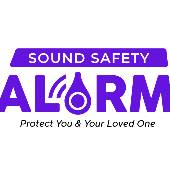Children often gain their first knowledge about crimes and violence through television shows and social media posts. These sources are sometimes helpful and informative, but, as adults, we know that the media can also be dangerous and deceptive.
While anyone can be a victim of crime, the vulnerability of children isn’t something we can take lightly. That’s why, in this article, we’ll talk about how you can start teaching your kids about the reality of crimes and equip them with knowledge on how they can protect themselves.
Find opportunities to talk about crimes and violence.
As parents or guardians, it’s important to understand that we aren’t necessarily shattering our children’s happy childhood by discussing violence with them. Just be sure to not over-elaborate or discuss heinous details of heinous crimes. Be mindful of your child’s age, and try to discern what sorts of information and terms their minds can comprehend and take well.
Most children see cartoon characters fighting and acting violently on TV, and that’s something that you can build on. Violence is a sensitive topic, but if you start with what your child already knows and really listen to their thoughts, then you’re in for a good start to a healthy, two-way conversation with your child.
Avoid over-elaboration, especially with very young kids.
This one is very important to keep in mind. What we want to instill in our kids is a sense of self-awareness and self-protection, not unreasonable fear or constant worry for their or their loved ones’ safety.
With that, avoid going into too many details that might cause unnecessary fear. If your kids become aware of heinous crimes, assure them that there are authorities handling the situation. Assure them that there are “safe people,” such as the police and security guards, who are constantly working to keep people safe.
Equip your kids with lessons on self-protection.
Children, especially school-age kids, should be taught basic safety precautions. A few things you can start with include ensuring that they know their full name, their address, their parents’ names, and that they have emergency contact numbers with them wherever they go.
Whether or not your children have mobile phones, a good practice is to write your contact information on a piece of paper and agree with them where you can keep it--like in their bag or wallet--so that they know where to find it. It’s also advisable to teach your children how to call 911.
Aside from these, talk to your kids about avoiding strangers (and when they are allowed to talk to strangers, such as when they need help), places they should avoid, places they aren’t allowed to go to without a trusted adult, and the like.
Empower your kids to speak out, yell, or move away when someone is making them uncomfortable.
Children might not always understand the concept of personal space, but they do know when a situation makes them feel awkward, weird, or uncomfortable. With that, an important thing to tell your kids is that it’s okay to express their discomfort.
Teach them how to say no and that they can yell and walk--or run--away when someone insists on touching or talking to them in a way that makes them uncomfortable. Teach them that it’s okay to ask for help, and they don’t need to feel embarrassed about “making a scene.”
You can also equip your child with some safety devices. Today’s technologies offer several wearable devices that children can use, like GPS watches, personal safety alarms, GPS jewelry, and many more. Having one of these can give you and your children a sense of safety and peace of mind. Plus, they can come in handy in case of emergencies.
As with any issues, prevention and preparedness make a huge difference. Don’t leave your children clueless or misinformed about crimes. With this guide, you can start equipping and empowering your children so that they know what to do even when you’re not around.




Leave Comment